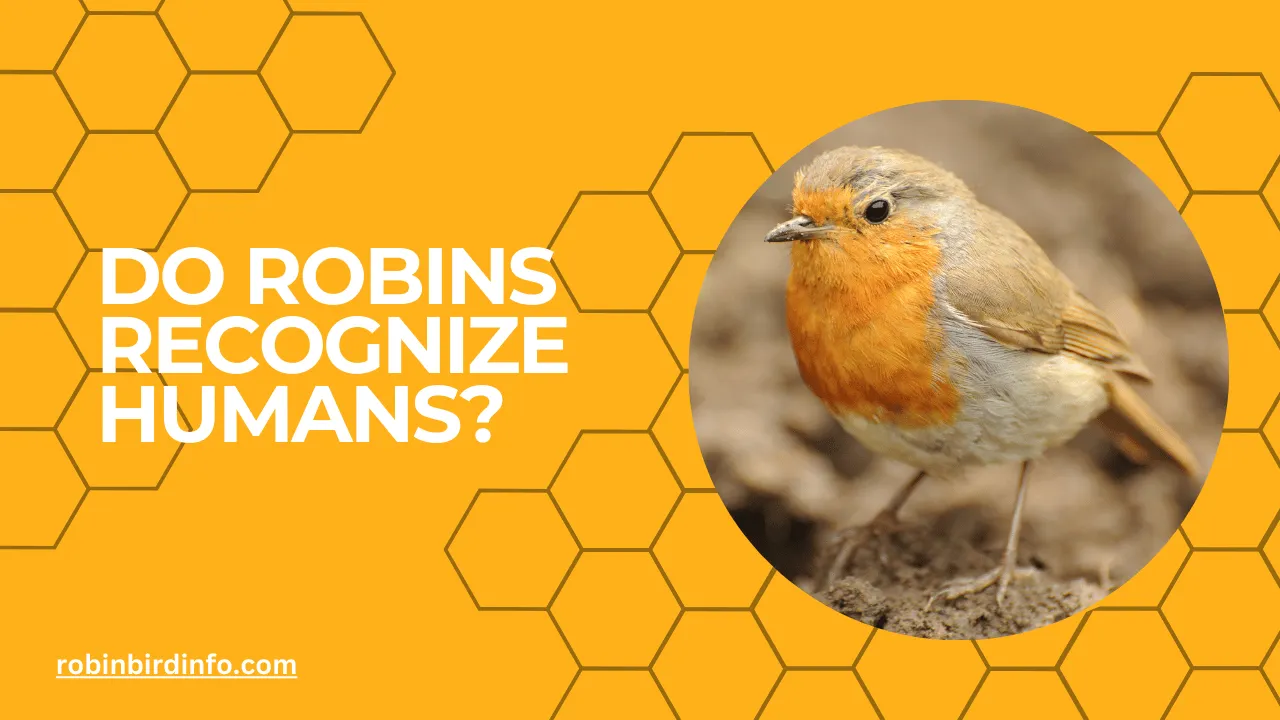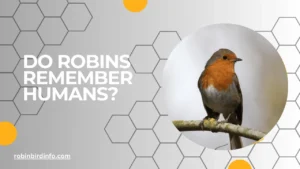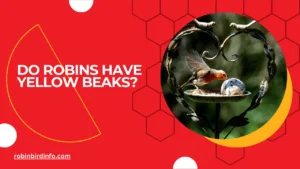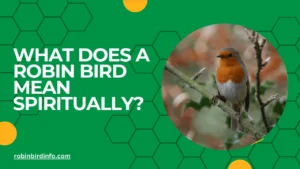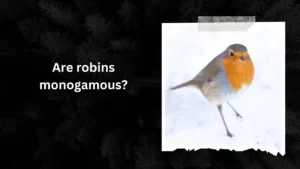Have you ever noticed a Robin perched on your windowsill, cocking its head and seemingly peering right at you?
Perhaps it’s become a regular visitor, snatching up worms from your freshly turned garden soil. You might even find yourself wondering, does this little bird recognize me? The truth is, the answer isn’t as simple as a yes or no.
Unlike our furry companions, Robins don’t form deep bonds with individual humans. However, their intelligence and keen observational skills might surprise you. This blog post dives into the fascinating world of Robin cognition, exploring how these seemingly ordinary birds interact with the humans they encounter in their daily lives.
We’ll delve into the science behind their behavior, uncover the factors that influence their responses to us, and ultimately, explore the possibility of a Robin recognizing a familiar face, or perhaps, a friendly feeder!
So, grab a cup of coffee and get ready to discover a new level of appreciation for these curious and surprisingly intelligent feathered friends.
Contents
Bird Intelligence
Birds possess a surprising degree of cognitive ability. They can learn complex behaviors, solve problems, and even use tools. Their brains, while smaller than those of mammals, are highly efficient and specialized for tasks like navigation, foraging, and social interaction.
Social learning plays a significant role in bird behavior. Birds can learn from each other through observation and imitation, passing on valuable knowledge and skills from generation to generation.
Robin Behavior and Human Interaction
Robins are known for their territorial behavior, especially during the breeding season. They may aggressively defend their nesting sites, dive-bombing perceived threats, including humans.
However, Robins can also become habituated to human presence, especially if they are regularly fed or observed from a distance. This habituation can reduce their fear response and allow for closer interactions.
Negative experiences with humans, such as being chased or injured, can lead to fear and avoidance behavior. Robins may develop a negative association with humans and become more cautious in their interactions.
Individual Recognition
While there is limited evidence for individual recognition in Robins, some studies suggest that birds may be able to recognize individual humans, particularly those who regularly feed them. Factors such as the bird’s age, experience, and the specific context of the interaction may influence their ability to recognize individuals.
However, it’s important to note that Robin cognition is limited compared to that of primates or mammals. They may not have the same level of self-awareness or complex social understanding as humans.
The Impact of Human Activities
Habitat loss and fragmentation can significantly impact Robin behavior. Loss of nesting and foraging sites can force Robins to adapt to new environments and interact with humans more frequently.
Bird feeding can alter Robin behavior. Regular feeding can lead to increased territoriality and aggression, as birds may defend their feeding stations. However, it can also provide supplemental food, especially during harsh winter conditions.
Human disturbance can stress Robins and disrupt their breeding and foraging activities. Noise pollution and recreational activities can negatively impact their behavior and reduce their reproductive success.
Conservation Implications
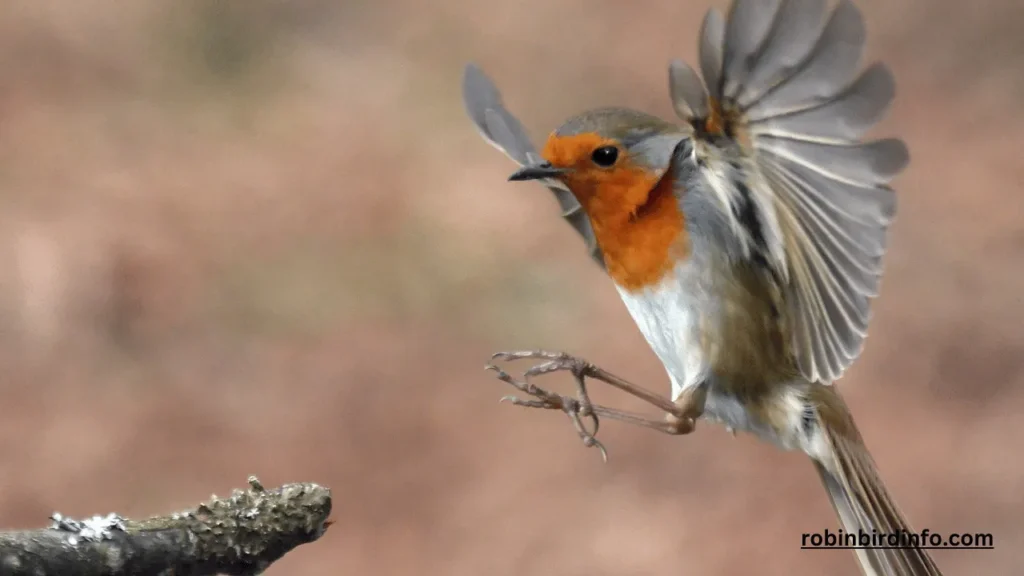
To minimize human impact on Robin behavior, it’s important to avoid disturbing nests and minimize noise pollution in bird-rich areas. By providing suitable nesting sites and food sources, we can create bird-friendly environments.
Citizen science initiatives can help gather valuable data on Robin behavior and population trends. By participating in bird surveys and reporting sightings, individuals can contribute to conservation efforts.
Promoting bird-friendly gardening practices can also benefit Robins. Planting native plants, providing clean water sources, and avoiding the use of harmful pesticides can create a healthy habitat for birds.
Conclusion
While Robins may not recognize individual humans in the same way we recognize each other, they can still form associations and respond to human behavior.
By understanding their cognitive abilities and the factors that influence their behavior, we can appreciate these fascinating birds and take steps to protect them.
By minimizing human disturbance, providing suitable habitats, and promoting conservation efforts, we can ensure the continued survival of Robins and other wildlife.
FAQ’s
Can Robins recognize individual humans?
While Robins may not recognize individual humans in the same way we do, they can learn to associate certain people with positive or negative experiences. For example, a Robin that is regularly fed by a human may become more tolerant of that person’s presence.
Do Robins have good memories?
Robins have relatively good memories, especially when it comes to recognizing their territories and finding food sources. They can remember specific locations and return to them year after year.
How do Robins communicate with each other?
Robins communicate through a variety of vocalizations, including songs and calls. They also use body language and visual cues to convey information about territory, mating, and threats.
What are the benefits of birdwatching for Robins?
Birdwatching can be beneficial for Robins as long as it is done responsibly. By observing Robins from a distance and avoiding disturbance, we can minimize stress on these birds and allow them to continue their natural behaviors.
How can I create a bird-friendly environment in my yard?
To create a bird-friendly environment, you can plant native plants, provide clean water sources, and avoid using harmful pesticides. You can also install bird feeders and birdhouses to attract and support bird populations.
What are the threats to Robin populations?
Robins face several threats, including habitat loss, climate change, and predation. By conserving their habitats and reducing human impact, we can help protect these birds and their populations.

